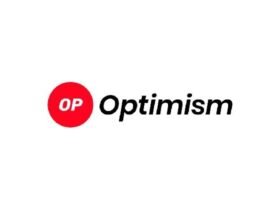Chainlink has completed a survey of leading European financial companies and scalable chains. The leading oracle company believes that business processes can be streamlined with oracles, on-chain communication and LLM.
Chainlink, the leading crypto and market data oracle service, presented the results of a survey in collaboration with leading European financial companies. Chainlink explored the topic of asset services using oracles, AI and on-chain transactions.
Following news of the investigation, the native LINK token traded at around $11.80, near the mid-range for 2024. LINK peaked above $21 in March but broke before fulfilling predictions for a rally to $30. LINK is an important part of the crypto asset world, but has mainly behaved like a utility token and traded sideways for months.
The research was conducted in collaboration with major asset managers and selected blockchain projects, to ensure a gold standard for data transfer. The investigation involved payment providers Euroclear and Swift, as well as banking and investment institutions UBS, Franklin Templeton, Wellington Management, CACEIS, Vontobel and Sygnum Bank. ChainLink has done something similar before exploratory studies with leading US financial institutions.
Chainlink also worked with the Hyperledger, ZKSync and Avalanche blockchain ecosystems to test data at scale.
Chainlink discovers streamlined business processes
Chainlink noted that the traditional business process was very complicated and distributed unstructured data through long documents, reports or PR texts. On the receiving end, all institutions had to connect with custodians, brokers, fund managers, exchanges and investors.
The data, if available, becomes fragmented between different points of interest. The requirement to publish human-readable data in multiple formats and statuses slows down the process and leads to duplication or errors.
Investors are often confronted with major problems complexity and costs in distributing data. Custodial companies set aside $3 to $5 million each year, and up to 75% of companies must manually extract and distribute data. Data also caused expensive data errors, costing companies as much as $43 million per year.
Chainlink tested using data oracles in combination with LLM to query the unstructured data. The oracle company was able to convert the data points into a predefined standard, aligned with the requirements of the Securities Market Practice Group (SMPG). Chainlink was also able to share data almost instantaneously and establish a unified, gold standard record for managers, custodians, and all business process participants. Chainlink also studied the removal and cross-checking of hallucinations from some types of language models.
Based on its oracular experience, Chainlink has developed solutions with a uniform gold standard file for on-chain projects. Chainlink already serves the entire blockchain sector, but has looked beyond the tokenization of real-world assets and the retrieval of timely data for smart contracts.
In its testing approach, Chainlink transformed business reports into machine-readable texts, allowing LLM to extract specific business process events, such as dividend payments. The extracted data exists in different versions, carried by nodes. Chainlink tested the data extraction and verification with three cross-checks LLM. For now, Chainlink hasn’t solved the liability issue when using LLM to parse human-understandable data.
The nodes then reach consensus on the event and publish it on the chain. Chainlink’s approach means that any business event can be codified in a way that is usable within smart contracts.
Once acquired and verified, the data can be used within any public or private blockchain to trigger events or transactions. Chainlink’s ultimate goal would be to create a new data extraction process, verify the data through several versions, and then distribute the information almost immediately.
The approach could track different types of corporate entities, including large companies in the FTSE 100 index, leading Eurozone companies, as well as other fixed income assets or equities.
Chainlink has already secured more than that $25 billion in projects, most of which are related to purely on-chain and crypto activities. However, Chainlink aims to achieve true asset tokenization, extracting reliable data on prices and business events and then publishing it across multiple chains if necessary.
Chainlink’s Cross-Chain Interoperability Protocol (CCIP) also achieves peak activity. The CCIP data mainly helps with the transfer stable coins such as USDC, but also LINK, wrapped ETH and several other smaller tokens. Requests to Chainlink’s CCIP have increased since May, coming from Ethereum and BNB, as well as some of the leading L2 companies. protocols.
Credit : cryptonews.net













Leave a Reply